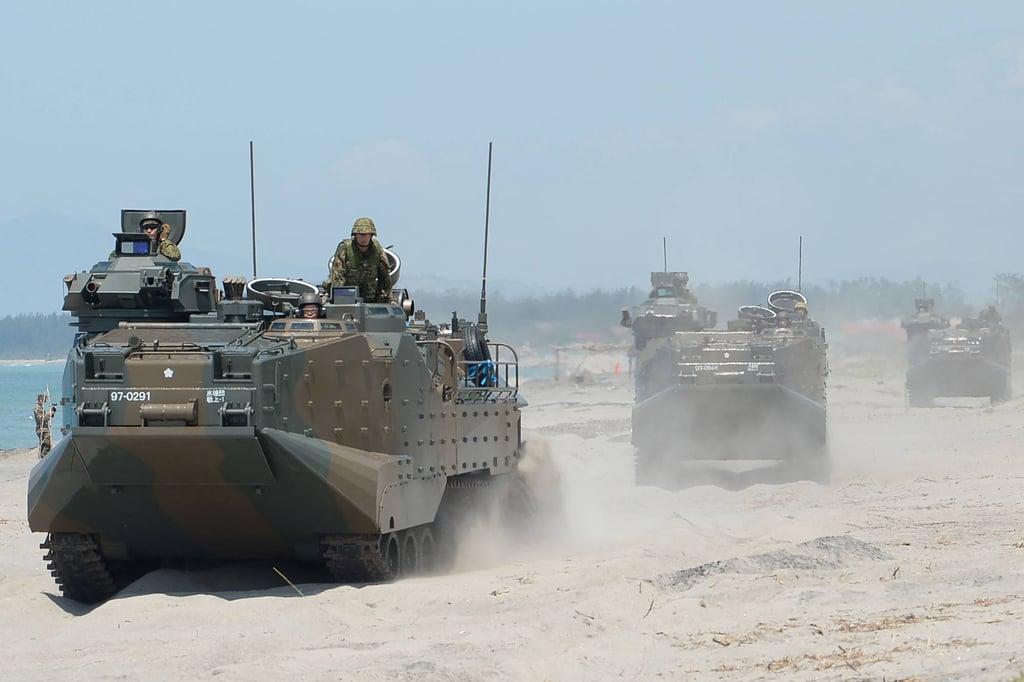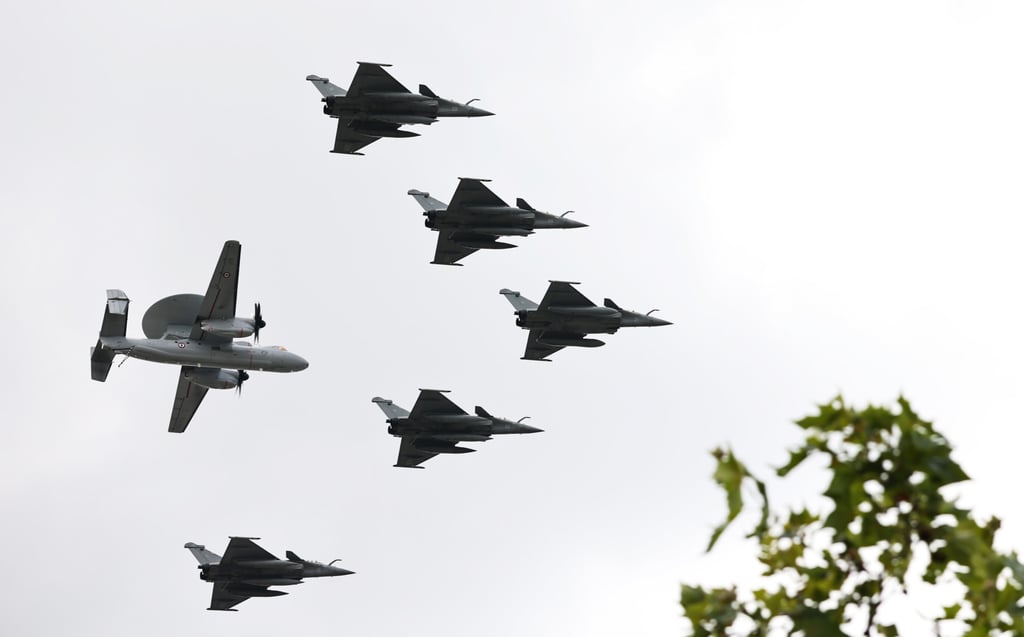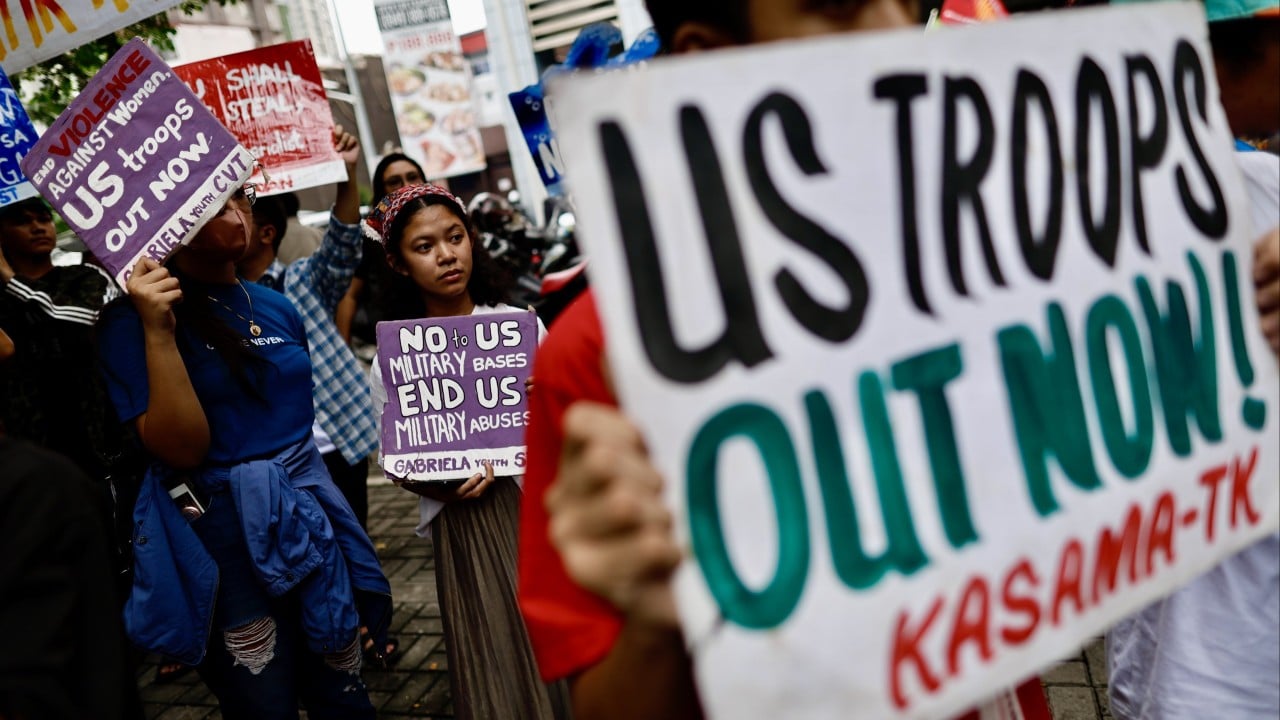With a signed defence pact, two aircraft missions, and more access agreements on the table, the Philippines’ growing diplomatic network could position it as a key partner for other nations to explore their Indo-Pacific strategies.
Observers say recent developments show Manila is “slowly and steadily” creating a defence network centred on “security concerns in the South China Sea”.
Following the signing of a troop deployment pact between Tokyo and Manila, France announced its yearly Pegase air-force mission in the Indo-Pacific was making a pit stop in the Philippines for the first time, while Italy’s carrier strike group would fly to the Philippines after joining Australia’s war games for a humanitarian mission.
Matteo Piasentini, geopolitical analyst and lecturer at the University of the Philippines, said: “[The moves] surely give the Philippines a prominent role as an actor in regional affairs, at least as long as security is concerned. They also, however, send the strong signal that the Philippines is aligned with US and allies in the region.”
On Monday, Philippine defence secretary Gilberto Teodoro Jnr said three other reciprocal agreements with Canada, New Zealand, and France were in the works for next year.
Chester Cabalza, president of the International Development and Security Cooperation, told This Week in Asia that New Zealand’s desire to strengthen ties with Manila aligned with the West in “their strong position of rules-based order in the tense region”.

“New Zealand shares the same objective of supporting the Philippines’ Hague ruling,” Cabalza said, referring to the international tribunal that ruled in favour of Manila in its maritime dispute with China, invalidating Beijing’s nine-dash-claim over the South China Sea – an outcome China has rejected.
“Wellington, along with 13 other countries, had been an observer in the past Balikatan exercises with Manila. Given that strategic direction, there is no stopping block for New Zealand as a strategic partner of the Philippines,” Cabalza said.
The Philippines’ inclusion under Pegase 24 – a yearly French Air and Space Force mission to the Indo-Pacific to demonstrate air power projection – is the latest in several moves by Paris to build closer security ties with Manila since military cooperation discussions began in December.
“Paris’ interest in Manila’s military modernisation grew when it offered assistance on its submarine programme and supported its maritime rules-based advocacy as an Indo-Pacific power,” Cabalza said.
This year, a contingent of French aircraft will land at Clark Airbase, a former US military base 93km northwest of Manila.
France’s ambassador to the Philippines, Marie Fontanel, said on July 12 that the mission was meant to illustrate the country’s commitment to upholding the freedom of navigation “as essential to keeping an open and inclusive Indo-Pacific region”.

Italy’s decision to include the Philippines in its Indo-Pacific itinerary was a “new addition to the strings of Western major powers to recognise the Philippines’ growing diplomatic network destined to safeguard democratic values at sea”, according to Cabalza.
With Asia remaining an essential trade route for Europe – 40 per cent of its foreign trade flows through the South China Sea – countries in the West would share concerns over potential disruptions in the sea lines of communication and flashpoints in the region, said Lucio Blanco Pitlo III, a research fellow at the Asia-Pacific Pathways to Progress Foundation.
“Europe has huge stakes in seeing the region’s security and prosperity and is keen to see unfettered access to critical waterways and peaceful resolution of disputes,” he said.
“Italy, the host of this year’s G7 summit, is the only member of the club of wealthy countries to come up with its own strategy towards the region,” he added.
Piasentini said however that Italy was unlikely to prioritise a reciprocal access agreement with the Philippines soon, with China remaining an essential economic partner for Rome.
“Until the end of 2023, Rome was still a member of the Belt and Road Initiative and shows no intention of openly antagonising Beijing. A more realistic outcome might be an agreement on military, technical, and industrial cooperation to facilitate information-sharing, training, and arms transfers,” he said, adding that Italy could benefit from the Philippines’ new procurement law that allows it to purchase second-hand military equipment to save costs on modernisation efforts.
Piasentini explained that unlike France, which had territorial interests in the Indo-Pacific region and could establish a regional presence through its overseas territories, Italy did not share this interest or capability.
“Participation in joint military drills helps deepen bilateral relations with key partners. For Italy, Australia and Japan are crucial partners economically and for defence technology-sharing. However, this does not necessarily indicate a strategic vision for the Indo-Pacific,” he said.
“While some Western countries are strengthening their defence ties, their interest and commitment levels vary greatly,” Piasentini said.


